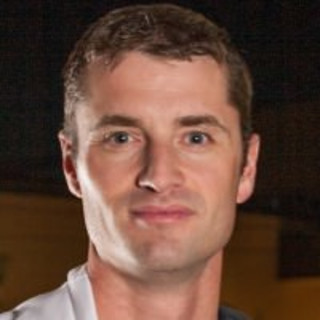As a practicing emergency physician and personal finance expert, I’ve experienced many of the medical and financial challenges doctors face today. As a result, I spend a lot of time sharing insights on my blog “The White Coat Investor” about topics such as how the PSLF program works, how to do a Backdoor Roth IRA, and the best way to use an HSA. But what I’ve come to realize after all these years is that it takes more than medical and financial acumen to be successful. It takes something I like to call “The X Factor.”
What is “The X Factor?” It’s the perfect compilation of motivation, the willingness to delay gratification, and the serious budgeting skills that carve out a big chunk of income to build wealth. Some doctors get “The X Factor” intuitively, while others have to make sacrifices necessary to increase their income and achieve wealth. Either way, “The X Factor” is crucial to a doctor’s prosperity and a trait that I believe is responsible for 80% of my financial success.
So, how do you get “The X Factor” and use it to your bank account’s advantage? Here are four tips for generating wealth and boosting your “X Factor” credibility.
1) Stop Spending Unnecessarily
The ability to stop spending money on purchases you don’t need is like a muscle. The more you exercise it, the stronger it becomes. After a while, you acclimate to living on a percentage of your income. That’s when you start seeing results — loans disappear and retirement accounts start accumulating.
Not to state the obvious, but it’s also crucial to reel in your budget. If you can make lifesaving decisions and support families through unthinkable situations, you can live in a condo for a couple of years after residency. These are the life choices that make a difference and the little sacrifices that can lead to big bonuses later on.
2) Stay Curious and Motivated
The pursuit of knowledge should never stop. For instance, it takes motivation to read a financial book. If you can’t come up with enough motivation to read at least one financial book per year, then it’s not going to happen.
However, if you search the internet, read a few financial books a year, and make connections with good advisors, the rewards will far outweigh the sacrifice.
3) Delay, Delay, Delay
Now’s the time to reframe how you approach making large purchases. Stop thinking about purchases as something you can’t have because you “can’t afford it.” Instead, think about extra expenditures as things you can’t have right now, but can have in the future.
When I came out of residency, my wife and I lived in a little townhouse. We didn’t dwell on the fact that we couldn’t have a big house. We focused on the fact that we could have it but not right then, and we proceeded to save 50% or more of that measly military salary. Four years later, we owned the big fancy mansion.
By delaying large purchases, my family could decide what was important to us, save up so we could pay cash, and buy it at the best time of year to get a deal. But most importantly, the delay allowed me to max out retirement accounts and achieve financial goals before buying it.
4) Change Your Mindset
Student loans and mortgages are not something you should live with for decades. The truth is that very few financially successful physicians have student loans or a significant mortgage. The same motivation and skills that gave them their success cause them to pay off those debts, even if it may have been mathematically advantageous to keep them.
Financially successful doctors don’t look at how much they have left in December to decide how much to put into their individual 401(k). They maxed it out back in April. They do their Backdoor Roth IRAs in January of the current year, not April of the following year. They don’t worry about whether they should have 5% or 10% in REITs, because they know they’re saving enough that any reasonable allocation is going to get them to their goals. They’re not struggling to save 20% of their gross income; they haven’t had a savings rate that low for years. They set their lifestyle up so saving 20% doesn't take any effort at all.
I believe you can self-teach the skills needed to have “The X Factor” and ultimately, build a long, prosperous career as a physician. But remember, it takes time and know-how to light the fire to long-term financial security and prosperity. If you don’t rush the process of building wealth and stay the course, you will see financial gains on the horizon.
How will you work to achieve greater financial success in the next year? Share your strategies in the comments.
James M. Dahle, MD, FACEP is a practicing emergency physician and the founder of The White Coat Investor. After multiple run-ins with unscrupulous financial professionals early in his career, he embarked on his own self-study process to become financially literate. After seeing the benefits of financial literacy in his own life, he was inspired to start The White Coat Investor to assist his colleagues.
Image by Nuthawut Somsuk / Getty Images







